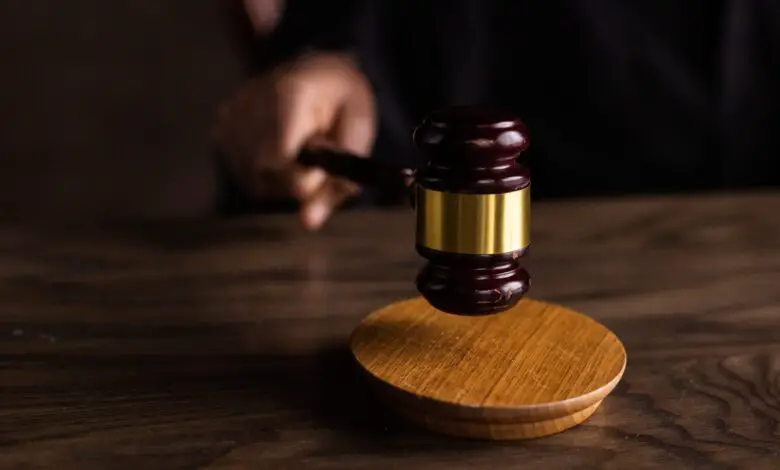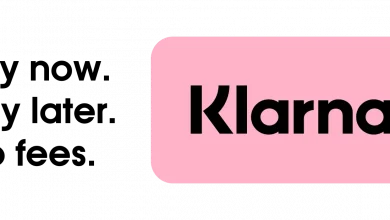What is a County Court Judgment (CCJ)? And How To Deal With It!

A county court judgment (CCJ) is a legal order issued by a county court to repay a debt. This type of debt is usually the result of an unpaid bill or outstanding loan. If you have a CCJ against you, it will appear on your credit report and may make it difficult to obtain future credit. There are several ways to repay a CCJ, but the most important thing is to act quickly and avoid accumulating more debt.
How long a County Court Judgment (CCJ) stays on your record?
A County Court Judgment (CCJ) is a court order that requires you to pay back the money you owe. The CCJ will stay on your record for six years, even if you have paid off the debt. This can make it difficult to get credit in the future. There are some things you can do to remove the CCJ from your record, but it is not always easy. You can make a request to the court, but this is not always successful.
How a CCJ is obtained
If you are owed money and the person who owes you money does not pay within 30 days of being served with a statutory demand, you can apply to the court for a county court judgment (CCJ).
To apply for a CCJ, you need to complete a claim form and send it to the court. The claim form must be served on the debtor. You can either do this yourself or ask the court to do it for you. If the debtor does not pay the CCJ within 14 days, you can ask the court to enforce the judgment. This means that the debtor’s assets can be seized and sold in order to pay off the debt.
There are a number of different ways to enforce a CCJ, so it is important that you get advice from a solicitor before taking any action.
The effects of a CCJ
If you’re facing a CCJ, it’s important to know what this could mean for your life. A CCJ is a county court judgment and it means that you’ve been taken to court and ordered to pay back money that you owe. This can have serious implications on your finances and your credit rating, so it’s important to understand the full effects of a CCJ before you’re faced with one.
A CCJ will stay on your credit file for six years, which can make it difficult to get credit in the future. It can also make it more expensive to borrow money, as lenders will see that you have a history of not paying debts back. If you’re struggling to keep up with repayments on a CCJ, you could end up having your wages garnished or your assets seized.
How to respond to the CCJ claim
When you are served with a claim form from the County Court, it will set out the particulars of the claim against you. This will include the amount of money owed, as well as interest and any other charges. The claim form will also tell you when and where the case will be heard.
If you do not agree with the claim, or if you think that you do not owe the money, you must file a defence within 14 days. This is done by completing a defence form and sending it to the court.
If you do not file a defence, or if your defence is unsuccessful, the court will enter a judgment against you. This will likely result in your wages being garnished or your bank account being frozen.
Fortunately, there are ways to respond to a CCJ claim and avoid these negative consequences.
What is the Attachment of Earnings Order
An attachment of an earnings order is a legal order that requires an employer to withhold money from an employee’s wages and pay it to a creditor. The order is usually used to collect child support or alimony payments, but can also be used to collect other types of debts.
If you have been served with an attachment of an earnings order, you should immediately notify your employer so that they can begin withholding the required amount from your paycheck. You will also need to provide your employer with a copy of the order.
If you are unable to pay the debt that is owed, you may be able to negotiate a payment plan with the creditor. However, if you do not make payments as required by the attachment of earnings order, you may be subject to wage garnishment or other legal action.
How a CCJ affects your credit record
A CCJ will have a major impact on your credit record and make it difficult to obtain credit in the future. The first thing you should do if you receive a CCJ is to try and negotiate with the court to have the judgment set aside. If this is not possible, you should make arrangements to pay off the debt as quickly as possible.
If you have a CCJ on your credit record, it is important to take steps to improve your credit score. You can do this by making all your payments on time, maintaining a good credit history, and using a credit repair service. By taking these steps, you can improve your chances of getting approved for future loans and lines of credit.
How to get a CCJ cancelled or ‘set aside’
If you’re facing a county court judgment (CCJ) and struggling to keep up with the repayments, there are steps you can take to get it cancelled. Here’s what you need to know about how to get a CCJ set aside.
If you can’t afford the repayments on your CCJ, you can apply to the court to have it ‘set aside’. This means the CCJ will be cancelled and you won’t have to make any more payments.
To apply to have your CCJ set aside, you’ll need to fill in a form called an ‘application notice’ and submit it to your local county court. You’ll also need to explain why you’re unable to make the repayments.
The court will then decide whether or not to cancel your CCJ.
How to get a CCJ marked as ‘satisfied’
A CCJ is a court order that states you owe money to someone. If you don’t pay, the court can send bailiffs to your home or workplace to take your belongings and sell them to cover the cost of what you owe. There are a few ways to get a CCJ marked as satisfied. You can either pay off the full amount you owe or come to an arrangement with the person you owe money to (known as the ‘creditor’) where you agree to make regular payments until the debt is paid off. If you’re struggling to make payments, you can speak to your creditor and ask for more time. You can also apply to the court for a ‘time order’ which gives you more time to pay off your debt. If you stick to the terms of the time order, your CCJ will be marked as satisfied.
CCJs and bankruptcy, what you need to know
If you’re facing bankruptcy, you’re not alone. Many people in the UK have faced financial difficulties and been unable to keep up with repayments, leading to a CCJ. Here’s what you need to know about CCJs and bankruptcy. If you’re considering bankruptcy, it’s important to get advice from a qualified insolvency practitioner first. They’ll be able to advise you on whether bankruptcy is the right option for you and help you through the process. Most importantly, they’ll be able to tell you whether your CCJ will be cleared with bankruptcy. If your debt is discharged in bankruptcy, this means that it’s written off and you don’t have to pay it back. This includes any CCJs that are registered for the debt. In some cases, the CCJ may be cleared if you’ve paid less than £600 and it’s been registered for less than six months.
Steps to improve your credit score
If you’re looking to improve your credit score, there are a few steps you can take. First, check your credit report for any errors and dispute them if necessary. Second, make sure you’re paying your bills on time and in full each month. Third, keep your credit card balances low. fourth, don’t apply for new credit cards or loans unnecessarily. fifth, use a mix of different types of credit. By following these steps, you can improve your credit score and get on the path to financial success.
Conclusion
In conclusion, a CCJ is a court order that states you owe money to a creditor. If you do not pay the amount stated in the order, your creditor can take further action to collect the debt, which could include seizing your assets or taking money from your wages. If you’re struggling to repay a CCJ, there are options available to help you, so it’s important to seek professional advice as soon as possible. Use the advice in this guide to help you understand what a CCJ is, how it can affect your credit score and how you can manage it.




